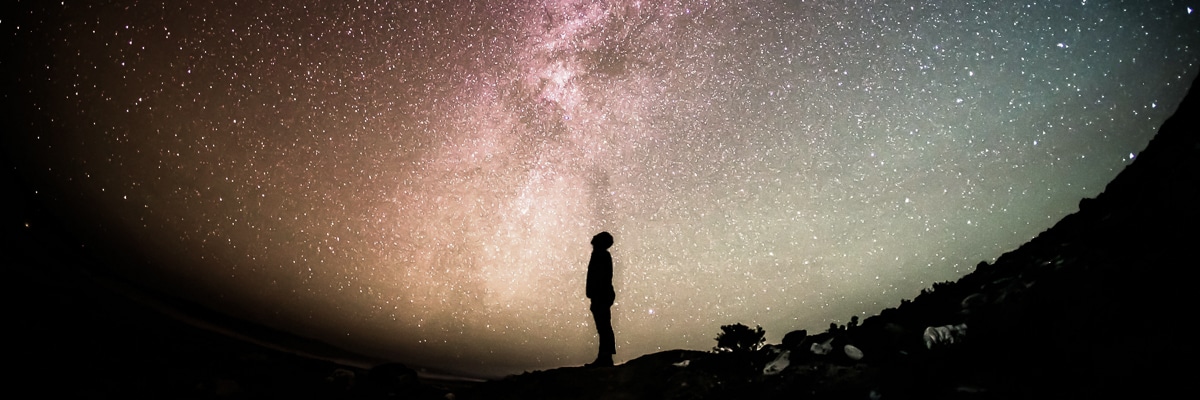
Philosopher Brian Swimme and historian Mary Evelyn Tucker reflect on the story of the universe:
We are the first generation to learn the comprehensive scientific dimensions of the universe story. We know that the observable universe emerged 13.7 billion years ago, and we now live on a planet orbiting our Sun, one of the trillions of stars in one of the billions of galaxies in an unfolding universe that is profoundly creative and interconnected. With our empirical observations expanded by modern science, we are now realizing that our universe is a single immense energy event that began as a tiny speck that has unfolded over time to become galaxies and stars, palms and pelicans, the music of Bach, and each of us alive today. The great discovery of contemporary science is that the universe is not simply a place, but a story—a story in which we are immersed, to which we belong, and out of which we arose.
This story has the power to awaken us more deeply to who we are. For just as the Milky Way is the universe in the form of a galaxy, and an orchid is the universe in the form of a flower, we are the universe in the form of a human. And every time we are drawn to look up into the night sky and reflect on the awesome beauty of the universe, we are actually the universe reflecting on itself. And this changes everything. [1]
Author John Philip Newell honors the work of scientist and Catholic priest Thomas Berry (1914–2009) who witnessed God throughout the cosmos:
Berry wanted us to be amazed, constantly amazed, by this one, single, interrelated body of the universe that new science describes as a single multiform reality, or as “Undivided Wholeness in Flowing Movement.” [2] It just keeps flowing and flowing into ever-new form. Four and a half billion years ago it flowed into the form of a planet of burning molten rock. And over the course of four billion years this globe of burning rock, Earth as it was later called, has transformed itself into birds and bees and butterflies, and into the emergence of human thought and music and love. We are each a shining flow of sacred energy.
Homo sapiens, meaning wise ones, appeared 200,000 years ago. We are latecomers in this story. The term “wise ones” does not accurately describe what we have been to one another and to Earth, but it could yet describe what we will become. As Berry adds, there is good reason to hope that “the universe is for us rather than against us.” [3] Given the dangerous moments that have been navigated thus far in the unfolding story of humanity and Earth, there is good reason to hope. It is now up to us to live from the wisdom of the Spirit that is deep within us. [4]
References:
[1] Brian Thomas Swimme and Mary Evelyn Tucker, Journey of the Universe (New Haven, CT: Yale University Press, 2011), 1–2.
[2] David Bohm, Wholeness and the Implicate Order (New York: Routledge Classics, 2002, 1980), 14.
[3] Thomas Berry, The Great Work: Our Way into the Future (New York: Bell Tower, 1999), 201.
[4] John Philip Newell, The Great Search: Turning to Earth and Soul in the Quest for Healing and Home (New York: HarperOne, 2024), 26.
Image credit and inspiration: Greg Rakozy, Untitled (detail), 2015, photo, United States, Unsplash. Click here to enlarge image. We stand awed by our contemplation of the cosmos and the science within it.
Story from Our Community:
About half a century after leaving the Catholic church, I have begun to walk an alternative spiritual path, thanks in large part to the CAC. I love the foundation of Christianity which invites us to treat others the way we would want to be treated. Science makes up part of a spiritual system as well. It’s founded on the idea that when opinions conflict, don’t assume one or the other is correct—work to resolve the conflict. I can see that some of my spiritual beliefs are grounded in science, while also aspiring to follow the example that Jesus set.
—James C.




